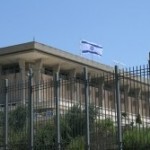
Angry over a refusal by Israel to formally apologize for their actions during the 2010 Turkish Gaza flotilla incident, Turkey announced on Friday significant sanctions against Israel. According to a statement posted on the Turkish Foreign Ministry website from Foreign Minister Ahmet Davutoğlu, that includes downgrading the status of Israeli diplomats present in Turkey—meaning there will be no Israeli ambassador presence in Turkey as of Wednesday—as well as suspending all military agreements with Israel.
On May 31, 2010, the Mavi Marmara vessel tried to bust Israel’s naval blockade on the Gaza Strip, the territory under the authority of the Hamas terrorist group. In order to enforce the blockade, Israeli soldiers commandeered the vessel, during which they were viciously attacked by activists on board and forced to defend themselves. In the ensuing fight, nine activists—eight Turks and one American of Turkish decent—were killed. Turkey has demanded Israel apologize and compensate the families of the victims.
In comments on background with The Mideast Update, an Israeli official noted that Israel did not want the diplomatic crisis. “Israel does not seek a deterioration with Turkey and believes a good relationship is good for both sides,” said the official, speaking on condition of anonymity.
The downgrade of ties by Turkey follows the leaking of the United Nations Palmer Report that investigated the Marmara incident. Originally published by The New York Times, the leaked version of the report says Israel’s naval blockade of Gaza is legitimate.
Said the report, “The naval blockade was imposed as a legitimate security measure in order to prevent weapons from entering Gaza by sea and its implementation complied with the requirements of international law.”
Following the flotilla incident, Israel significantly lessened the blockade on Gaza, and the report did recommend that Israel “continue with its efforts to ease its restrictions on movement of goods and persons to and from Gaza with a view to lifting its closure.” With a recent Gaza rocket barrage against Israel in the background, Israel still considers the blockade to be necessary.
As for the flotilla incident itself, the leaked version of the Palmer Report said that Israeli soldiers “faced significant, organized and violent resistance from a group of passengers when they boarded the Mavi Marmara requiring them to use force for their own protection.”
However, the report also criticized Israel for an “excessive” approach to the blockade bust-attempt, and that the resulting deaths and injuries were “unacceptable.”
The Israeli representative to the Palmer Panel, in an official response contained within the report, defended the actions of Israel prior to the boarding. He noted they repeatedly warned the vessels ahead of time, as well as pointing out the “operational limitations” in the takeover’s timing and manner, which he said needed to be covert in an attempt to minimize resistance.
He also defended the actions of the Israeli soldiers. He pointed out video footage showed they were facing activists with metal bars, chains and staves; that the Panel confirmed that “two soldiers received gunshot wounds” from unknown sources during the fighting and that some soldiers were wounded seriously by passengers.
“Given these circumstances, Israel’s soldiers clearly acted in self-defense and responded reasonably, proportionally and with restraint, including the use of less-lethal weapons where feasible.”
The Israeli representative felt the Palmer Panel’s characterization of the situation did not adequately take into account “what was clearly a chaotic combat situation.”
Said the Israeli response, “In such a situation, reconstructing the exact chains of events is extremely difficult, if not impossible. Given the close range combat that clearly took place aboard the vessel, wounds sustained at close range do not in themselves suggest wrongdoing by Israeli soldiers.”
Israel also challenged the veracity of statements in a Turkish report from passengers claiming wrongdoing by Israel after the flotilla was commandeered. Said the Israeli representative, “Israel’s treatment of the hundreds of participants following the takeover of the ships was reasonable and compatible with international standards.”
Ironically, the Israeli response in the report concludes with an expression of appreciation for Jewish-Turkish friendship and expresses the hope that the Palmer Panel’s work would help Israel and Turkey “in finding a path back to cooperation.”
The Palmer report emphasized that its role was not to act as a court and that its conclusions therefore are not intended to attribute legal responsibilities.
(By Joshua Spurlock, www.themideastupdate.com, September 2, 2011)
